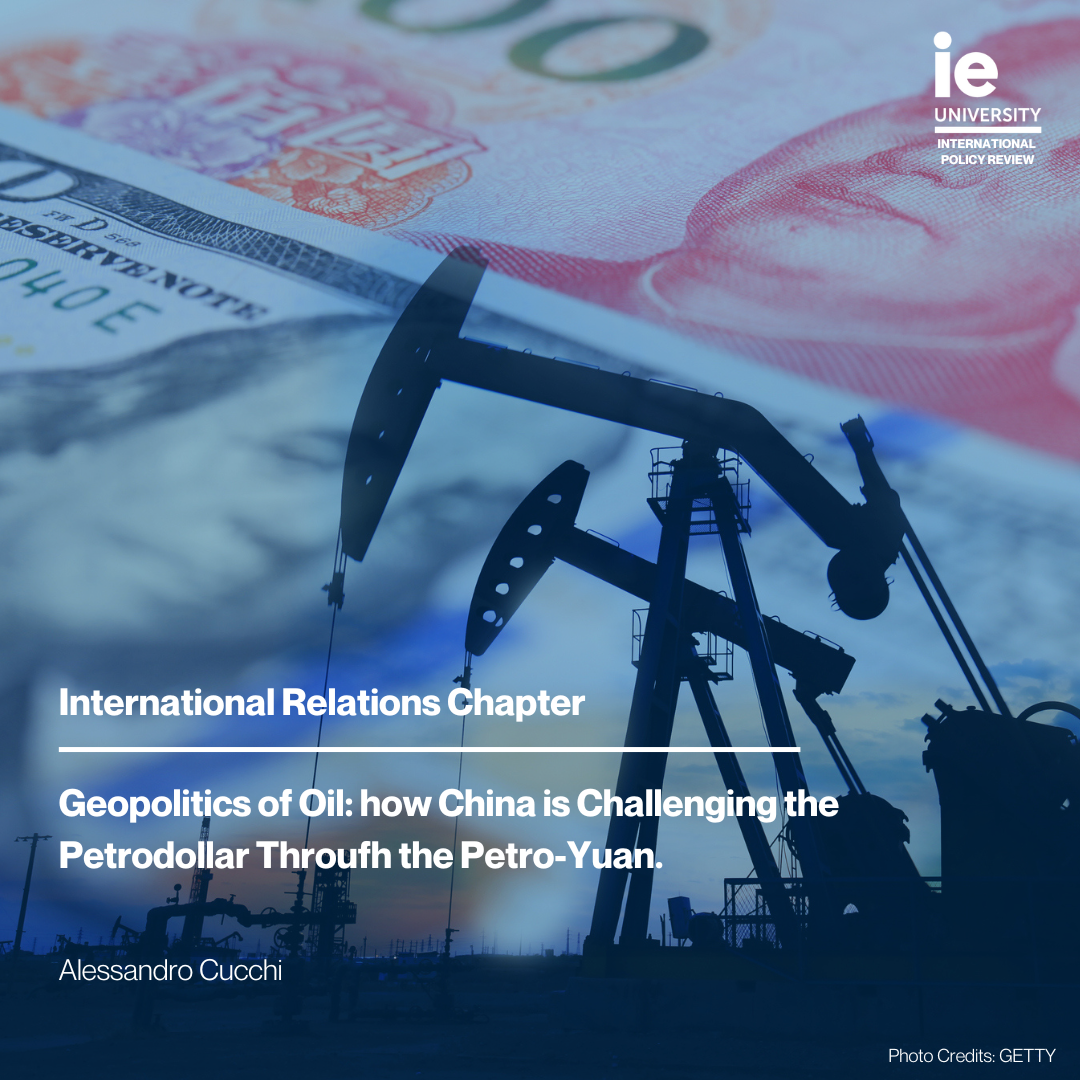
27 Jun Geopolitics of Oil: How China is Challenging the Petrodollar through the Pedro-Yuan
Alessandro Cucchi
School of Politics, Economics, and Global Affairs Madrid, Spain.
Bachelor in International Relations.
Email: acucchi.ieu2022@student.ie.edu.
Abstract
This article aims to explore the ways China is challenging American hegemony in a different geopolitical arena. The strategic rise of the Petro-Yuan may pose a challenge to the historical Petrodollar system that has dominated global oil trade for the last 5 decades. Originating from US-Saudi agreements in the 1970s, following the Yom Kippur War, the petrodollar established the US dollar as the exclusive medium for international oil transactions, granting the United States substantial economic and geopolitical leverage. Nonetheless, China, in recent years, has sought to challenge this dominance by promoting a diverse system, with the Yuan Renminbi central to it. The petroyuan provides states with an alternative oil trade currency, launching crude oil futures contracts denominated in yuan, and encouraging oil-exporting nations, especially those under Western sanctions, to adopt the Chinese system. This article explores case studies such as Russia, Iran, and Venezuela, illustrating how the petroyuan has been implemented to bypass sanctions and reduce dependence on US financial systems. Furthermore, the emerging interests from Gulf countries, particularly Saudi Arabia, are covered in this article to provide a strong analysis on the implications and possibilities of whether the yuan could replace the dollar in the global oil trade. The analysis concludes that while the Petro-Yuan has made progress in offering an alternative to the petrodollar (especially among politically isolated regimes), it is unlikely to fully take over the dollar in the near future. Nonetheless, its growing role in global energy transactions indicates a gradual evolution towards a more diversified and contested international currency order.
READ THE FULL ARTICLE HERE
Keywords: Petrodollar, Petro-Yuan, Oil Pricing, Energy Diplomacy, Dark Fleet T ankers

Sorry, the comment form is closed at this time.